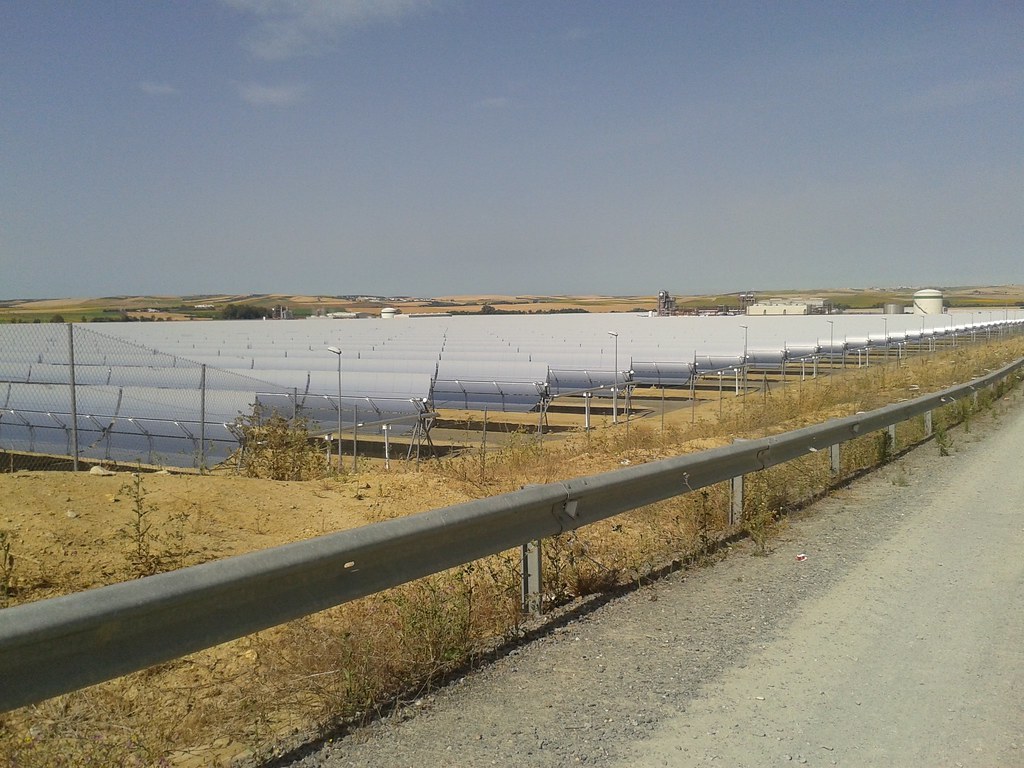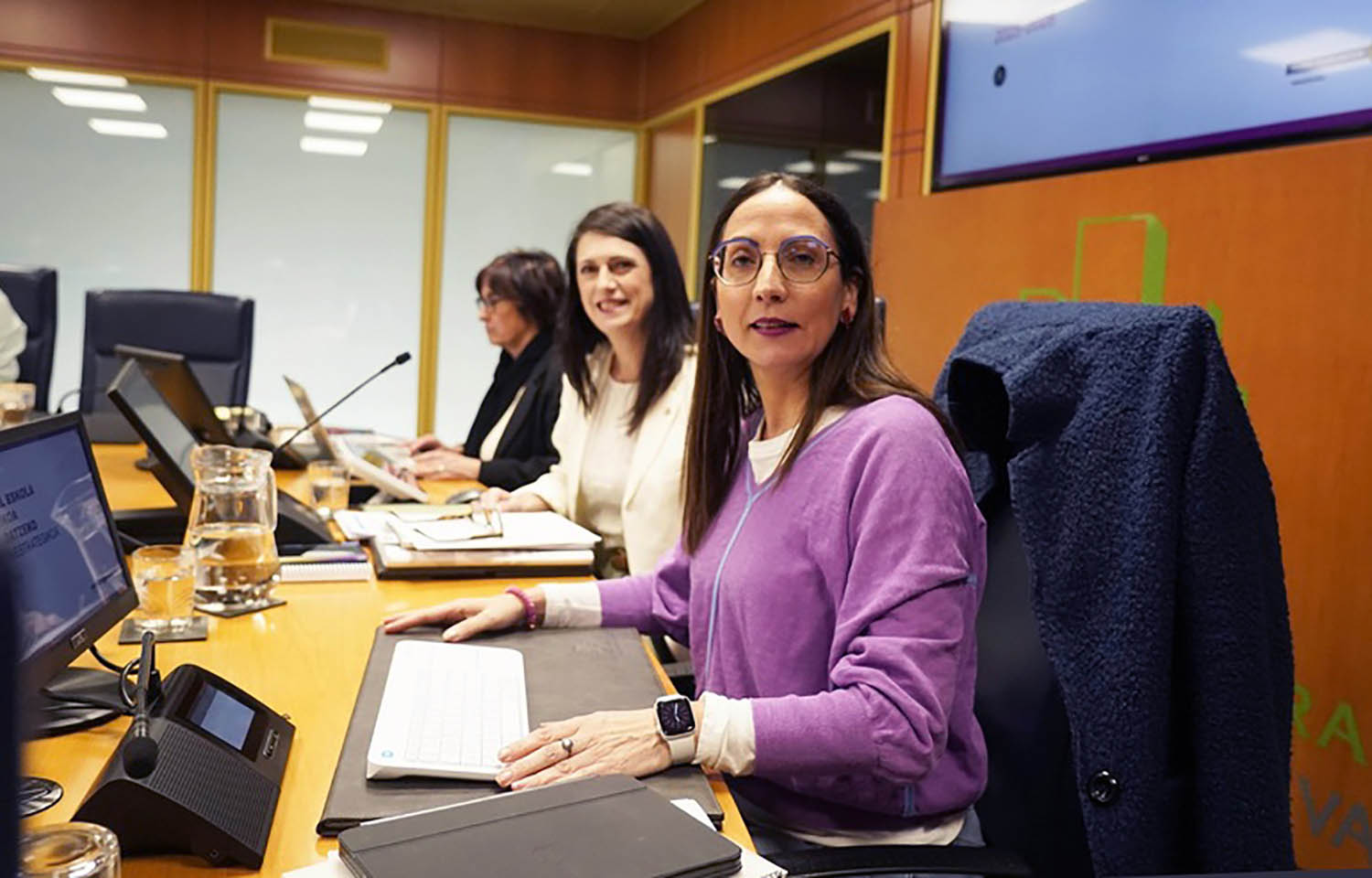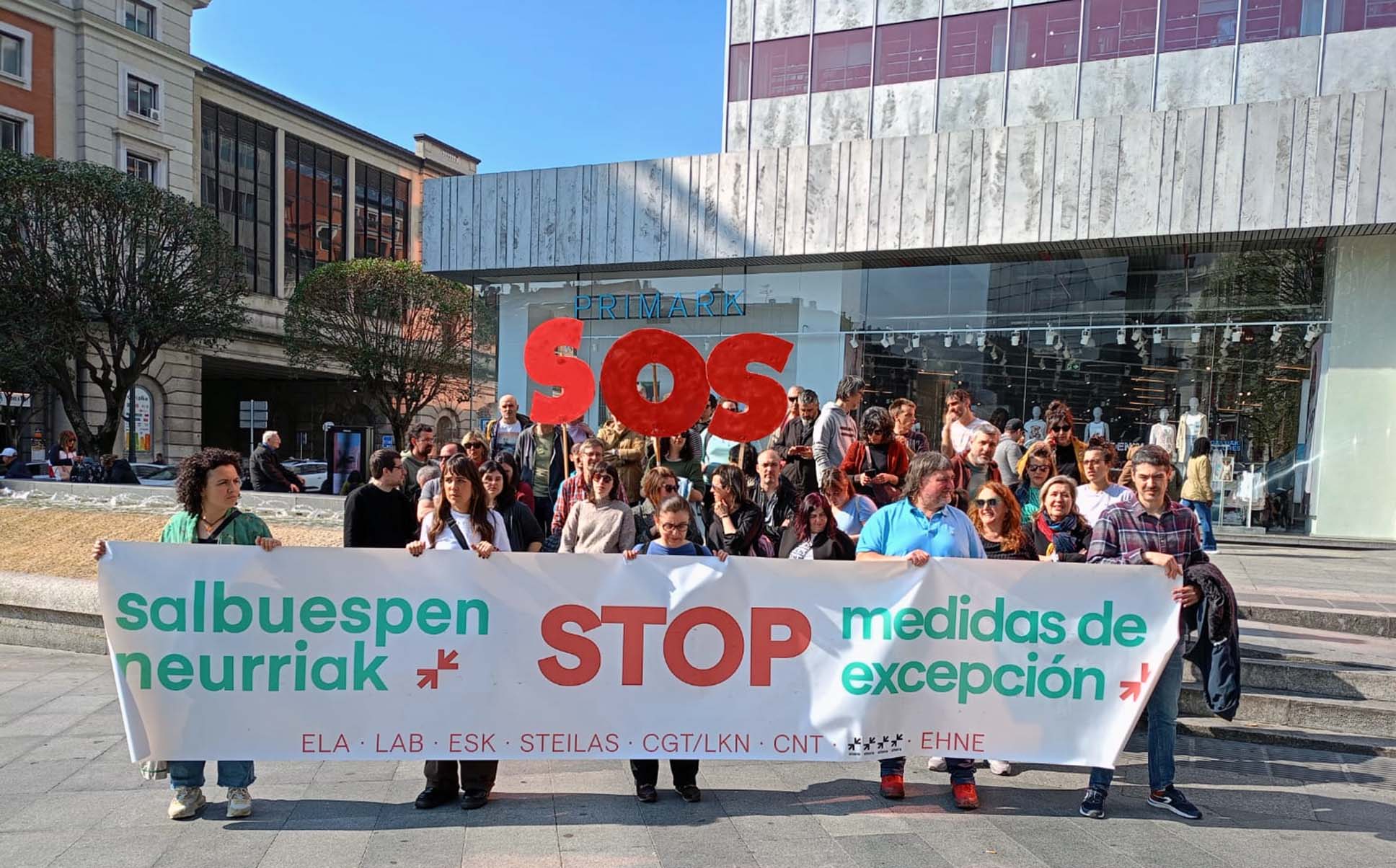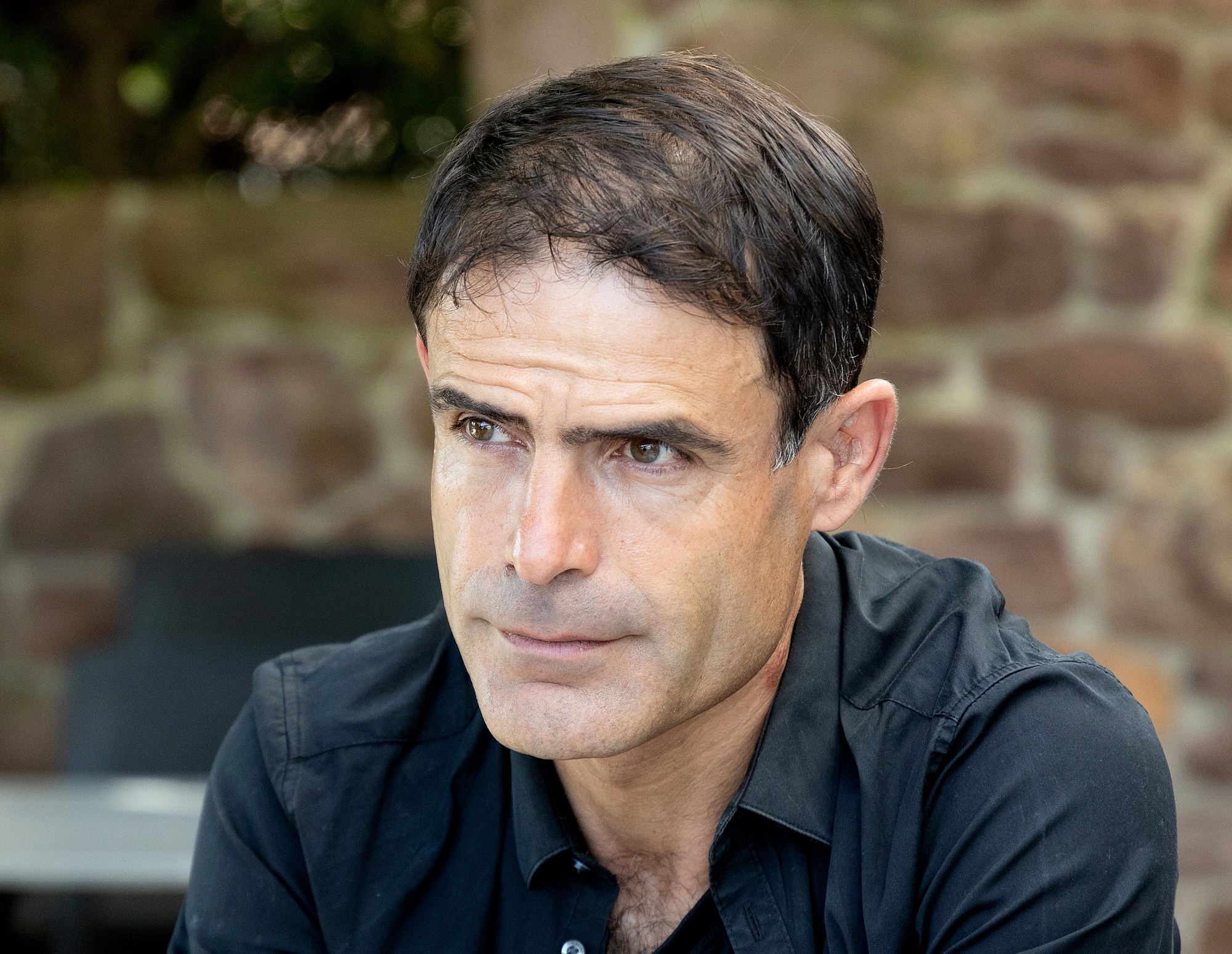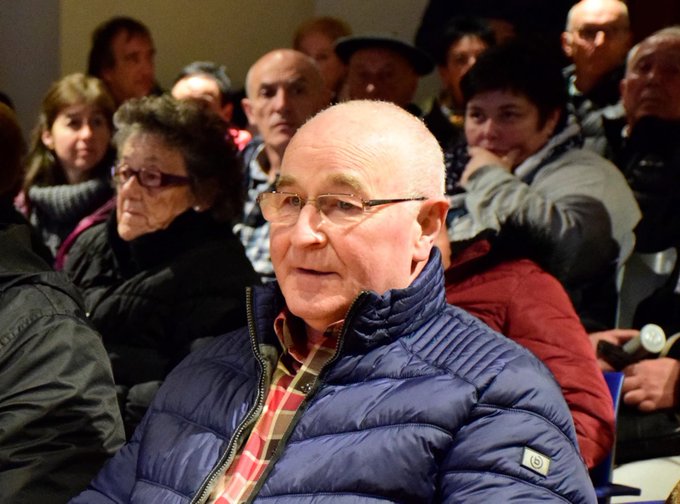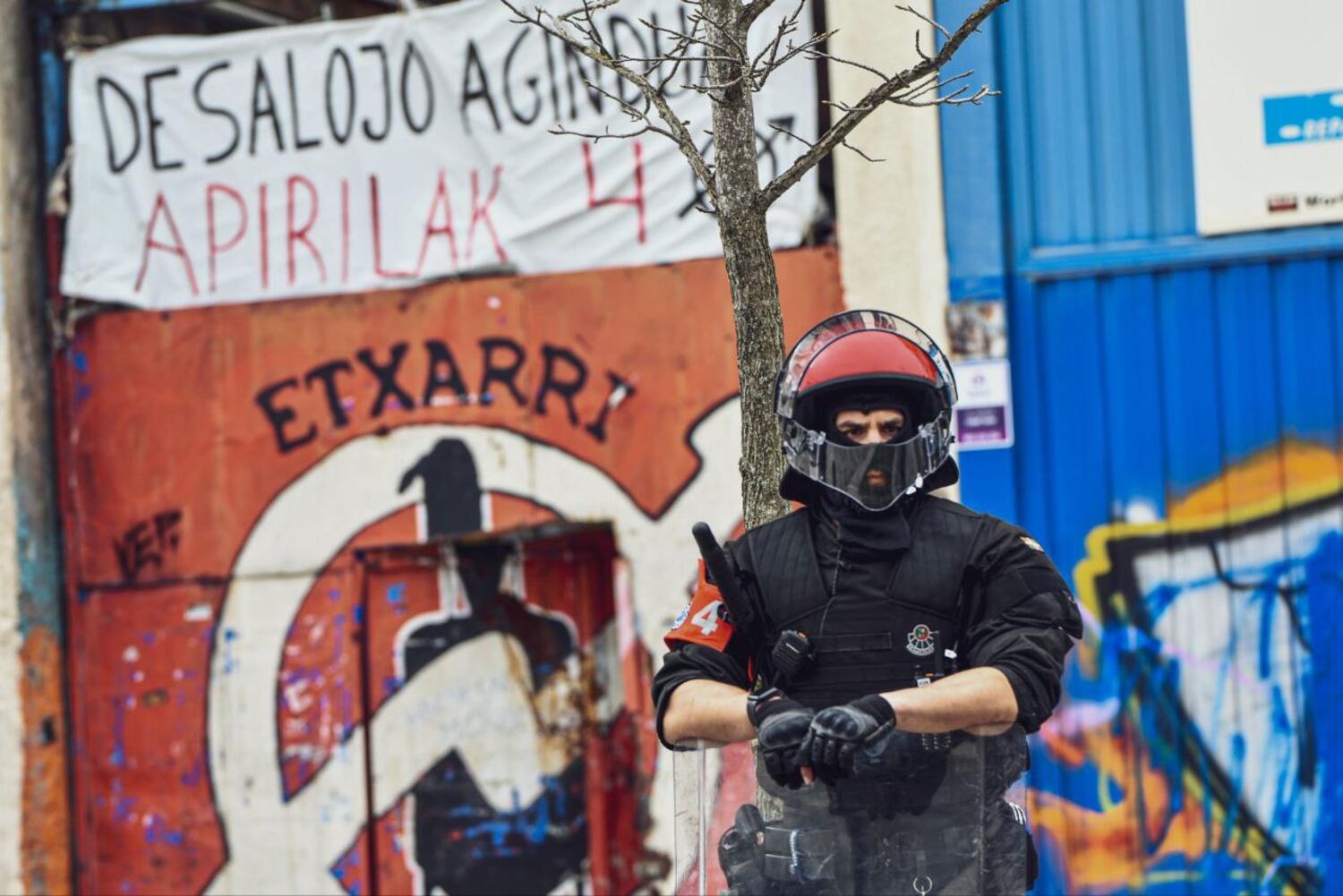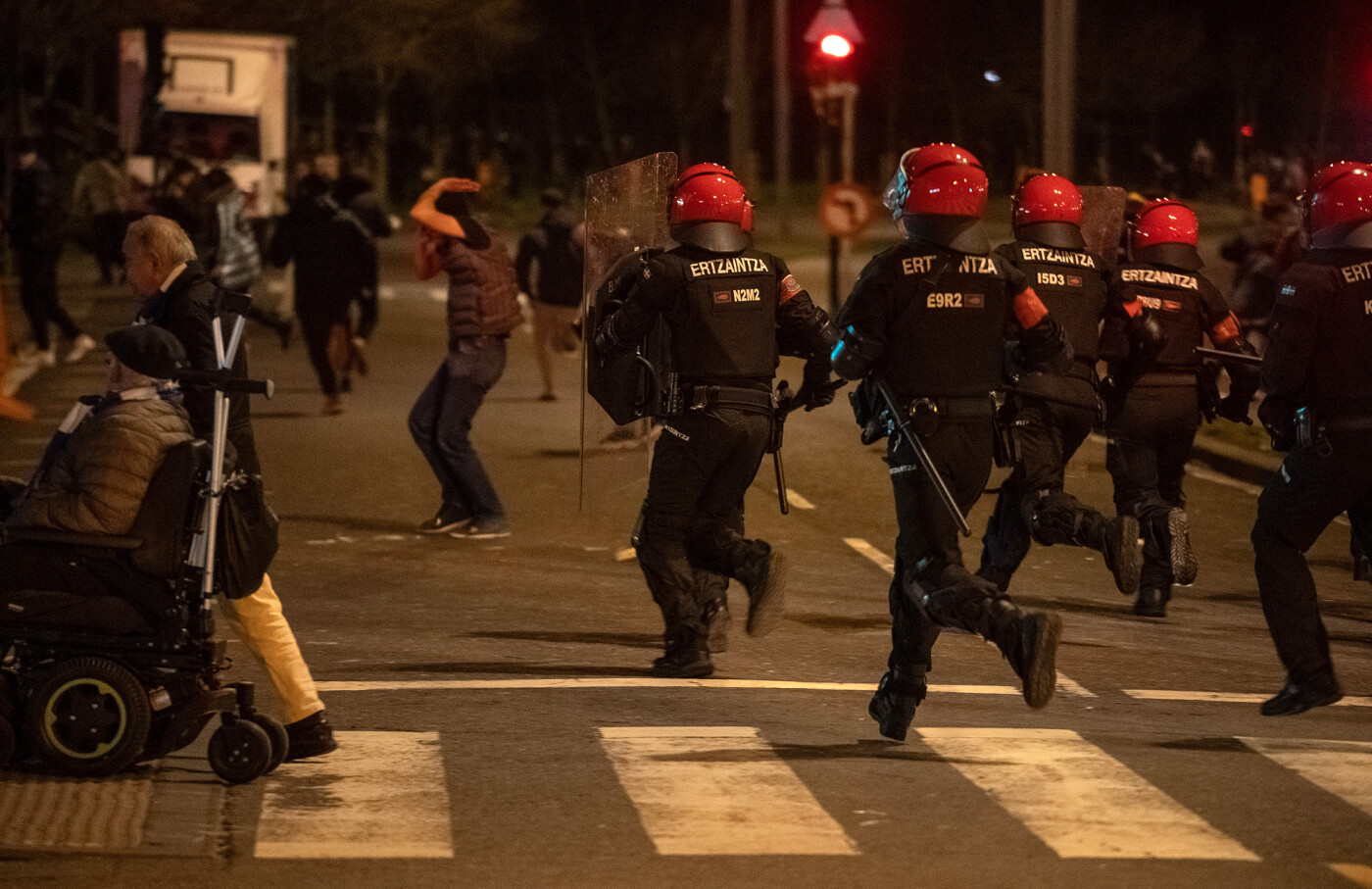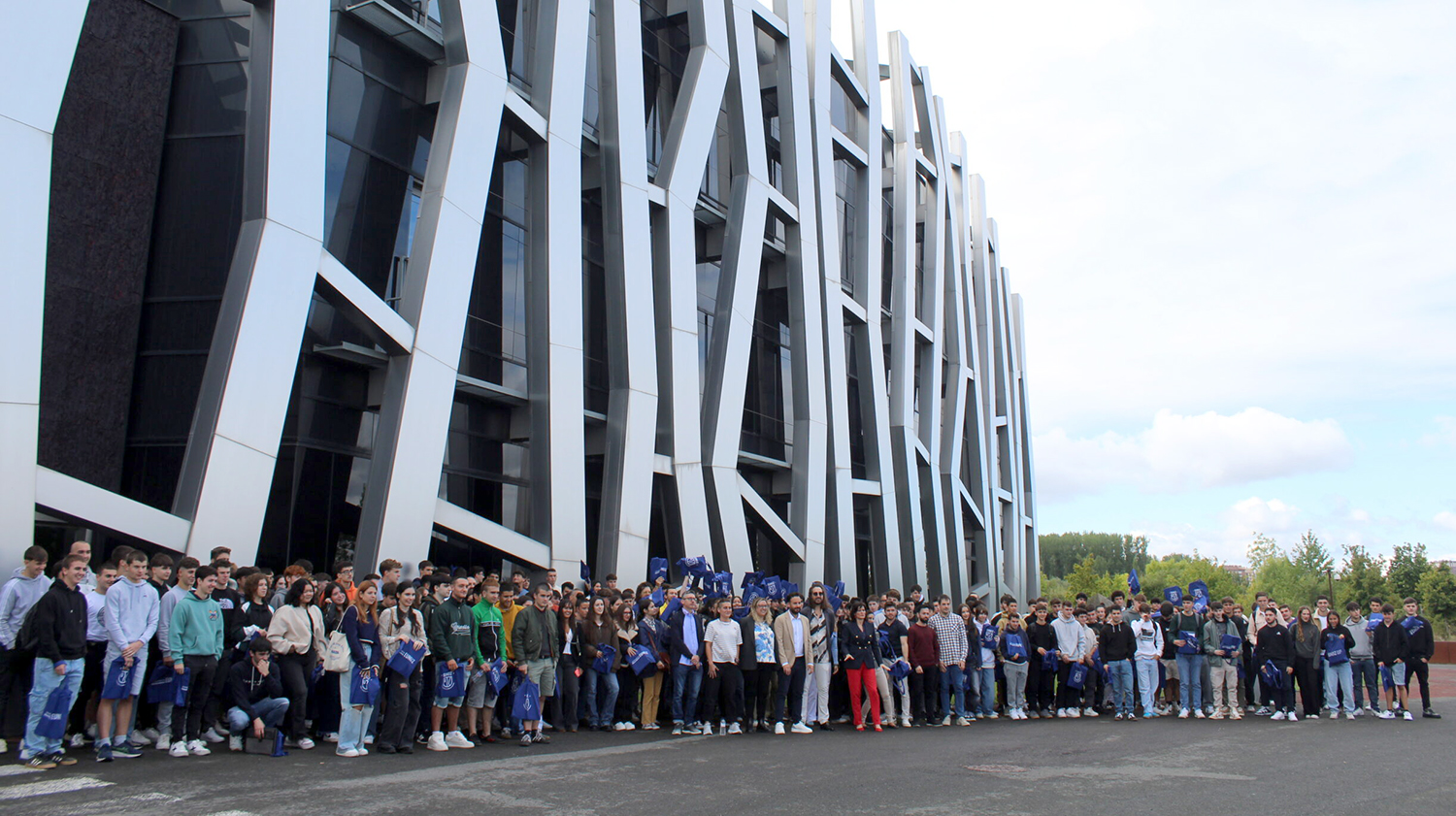They propose that the Summit be "the home of the victims of the State"
Memorialist and family groups of Josean Lasa and Joxi Zabala have proposed to turn the Donostia-San Sebastian Summit Palace into a space of recognition, reparation and dissemination of the victims. According to the Democratic Memory Act, the building will remain in the hands of the City Hall of Donostia-San Sebastián, to be a "place of memory".

From a dark and painful place, the Palace of La Cumbre aims to become a "house of victims" of violations of human rights by the state. This has been proposed in an event held this Tuesday afternoon at the Ernest Lluch House of Culture in Donostia-San Sebastián by the Egiari Zor, Aranzadi, Argituz, Mikel Zabenhancement associations and the relatives of Josean Lasa and Joxi Zabala.
In 1983, when the GAL tortured Lasa and Zabala inside, the building had just been taken over by the Spanish Ministry of the Interior. According to the Democratic Memory Act of Spain, the City of Donostia-San Sebastian will now be in the hands of the Municipality of Donostiarra. But once it has been given the name “place of memory”, it is necessary to define what its function will be, and the memorialist groups and the victims have defined their proposal.
In 1983, when the GAL tortured Lasa and Zabala inside, the building had just been taken over by the Spanish Ministry of the Interior. It will now be in the hands of the City Hall of Donostia-San Sebastián, as the Spanish Democratic Memory Act states.
A “psychosocial space” for reparation
It would be a space that would move from a “museographic” space to another, as explained in the presentation on Tuesday. Thus, it would seek the recognition and reparation of the victims of the police and para-police groups, in addition to promoting research and dissemination.
The proposal provides for an exhibition inside the building on Franco and human rights violations during the so-called “Transition”, and an artistic space in the outdoor gardens so that the palace is open to citizens. It would also have a documentation space coordinated by the UPV/EHU and Aranzadi.
It would be a space that would move from a “museographic” space to another, as explained in the presentation on Tuesday. Thus, it would seek the recognition and reparation of the victims of the police and para-police groups, in addition to promoting research and dissemination.
The relationship with other projects and centers such as the Memorial 3 of March of Vitoria-Gasteiz or the Memorial of the Victims of Terrorism, the Peace Museum of Gernika, the space of Gogora in Franco Bilbao or the Collumbary of Dignity that collects the remains of the victims of the War.
The Summit would also be a “psychosocial space” that would provide psychological and social services for the monitoring of victims. In the presentation, anthropologist Olatz Retegi explained that it is necessary to attend to these people in a specialized way, “because they are still painful”.

Pending institutional response
In addition to family members of victims and political representatives, the presentation of the proposal was attended by memory experts such as film director Bertha Gaztelumendi or researcher Aranzadi Javi Buces. As the latter explained to Euskadi Irratia, the proposal has already been transferred to public institutions, which expect a "positive response".
Last August, several media outlets filtered that the Basque Government and the City Hall of San Sebastian already have a draft in their hands to define the role and future of La Cumbra: “We are waiting because there are other proposals. It may not be our proposal in a hundred hundredths, but the important thing is to develop that center,” said Buces.
“Etapa berri baten hasiera” eta “historikoa” moduko hitzekin aurkeztu du Eusko Jaurlaritzaren Hezkuntza Sailak Euskal Eskola Publikoa Eraldatzeko I. Plan Estrategikoa, Eusko Legebiltzarrean. Edukiak oraindik ontzeko eta zehazteko daudela, plana hamar... [+]
ELA, LAB, ESK, STEILAS, CGT-LKN, CNT, HIRU, EHNE eta ETXALDE sindikatuak, Sarek abiatutako Gotzon SOS kanpainara batu dira. 2019an antzeman zioten gaixotasun genetiko sendaezina 68 urteko preso politiko bilbotarrari. Sindikatuek gaixotasun larriak dituzten presoak kartzelatik... [+]
Aberri Eguna elkarrekin ospatzeko xedez sortu zen Euskal Herria Batera plataforma. Aurten, ikusgarri bat eskainiko dute apirilaren 11n, Manex Fuchs antzerkilariaren, Lorea Agirre idazlearen eta Martxel Rodriguez dantzariaren eskutik.
The writer Juan Bautista Bilbao Batxi worked in a boat and sent the chronicles of his travels to the newspaper Euzkadi. Thanks to this, we have interesting chronicles in Basque from around the world from the beginning of the 20th century. In June 1915, he made his stop in... [+]








